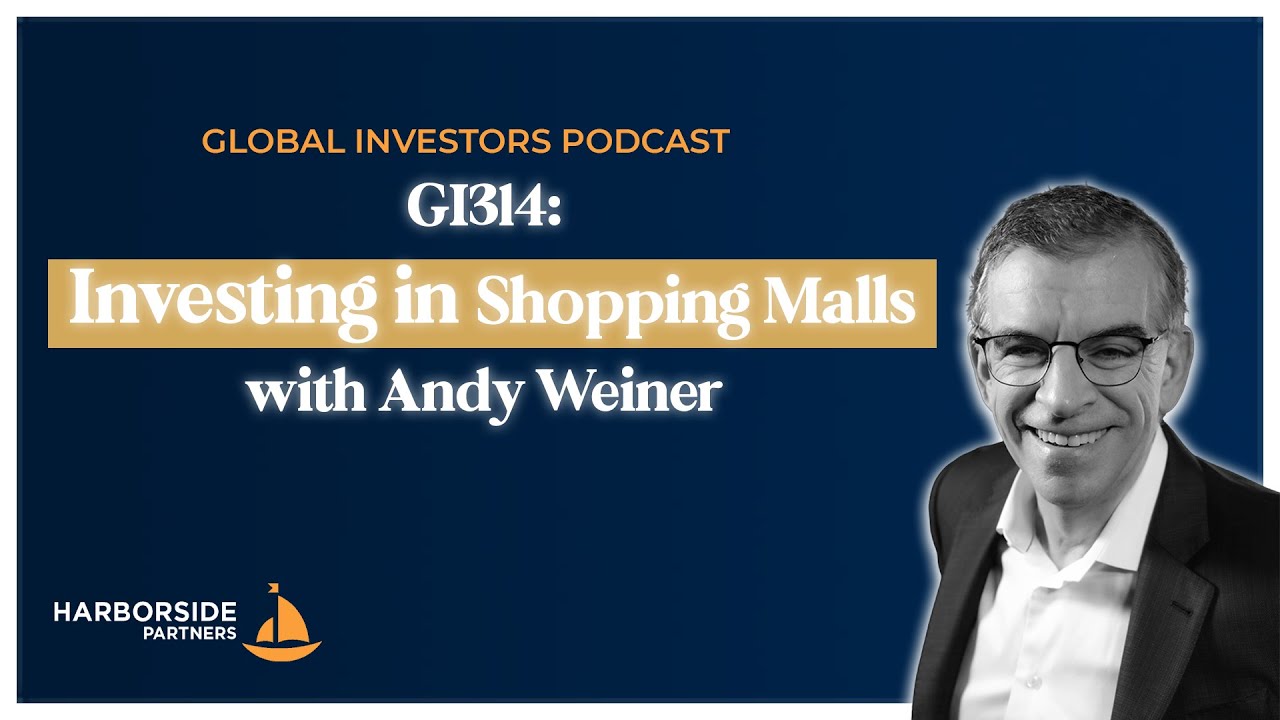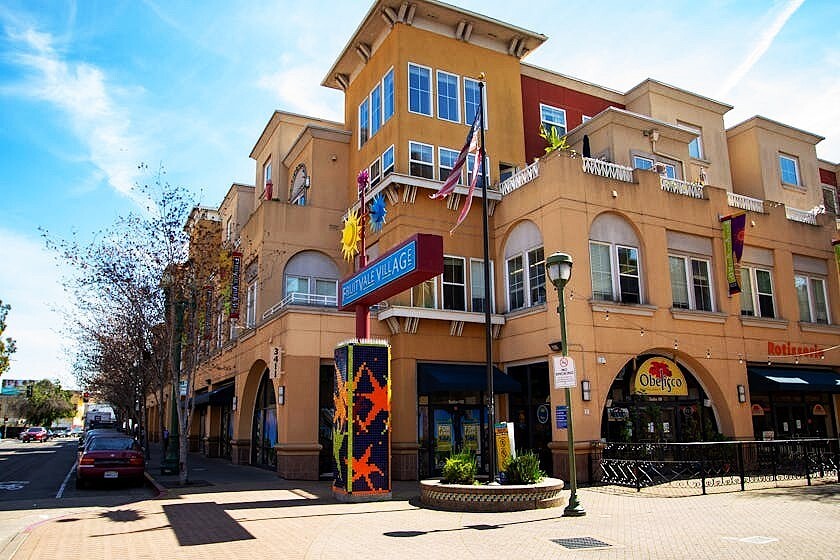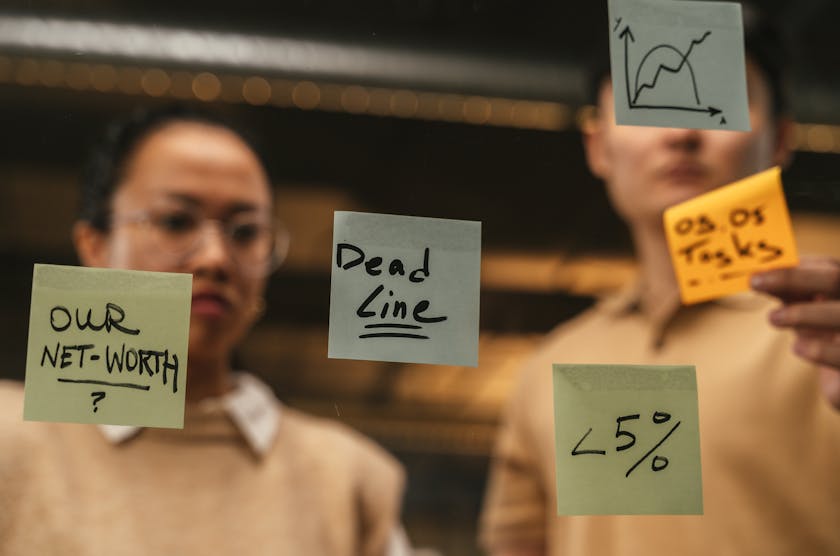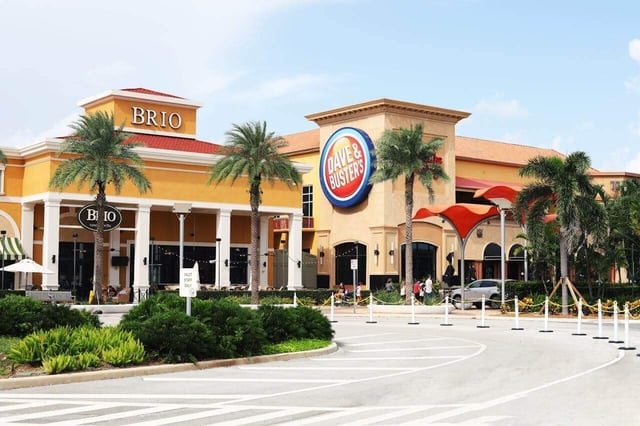The Global Investors Podcast: Investing In Shopping Malls
July 9th, 2025
4 min read

Note: This episode is also available on platforms like Apple Podcasts and Spotify.
Andy Weiner joined Charles Carillo on the Global Investors Podcast to discuss how his firm generates strong returns in an often-overlooked segment of commercial real estate. With over 10 million square feet of retail assets across 11 states, Weiner shared insights into why secondary markets, stable cash flow, and local partnerships form the core of his strategy.
Retail Experience as a Real Estate Edge
Weiner’s career began in his family’s clothing business, where he gained hands-on experience managing operations and real estate across 159 stores. That background laid the foundation for his success in evaluating tenants and assets.
“My grandfather started a clothing store chain in Houston in 1920 and built a chain of 159 stores, each store the size of a TJ Maxx, about 20,000 square feet. And I ran these stores. I ran operations for the company, so I ran stores, store operations, real estate, finance, logistics, systems, HR—and really just learned retail.”
This understanding continues to shape how he assesses risk and value in tenant relationships.
“I learned a lot about retail and how to think about retail—how inventory is managed, how you plan store metrics... that helps me in real estate, investing in the shopping centers, because I can think about a tenant and get a pretty good sense of its durability, of its survivability.”
Finding Opportunity in Smaller Markets
RockStep targets cities that many investors overlook. Their focus is on places with long-term demand drivers and limited retail competition, which create opportunities to buy at attractive yields.
“We look for secondary and tertiary markets that have essential driver like a university, major Fortune 1000 companies, hospital districts, tourism, government, military or some research facility—something deriving population growth in that market.”
He pointed to Lake Charles, Louisiana, as an example, where RockStep is acquiring a rebuilt shopping center at a steep discount to replacement cost.
“We’re buying a grocery-anchored center that was demolished in Hurricane Laura in 2020, rebuilt to withstand 140-mile-an-hour winds. We’re buying it at an eight and a half cap and we’re borrowing at 7%. So we have positive leverage.”
The region is also seeing major investment, which enhances the asset's long-term appeal.
“Three weeks ago was announced the largest investment in the history of Louisiana—a $17.5 billion LNG terminal. This means there will be construction with around 8,500 workers for four years… There’s a lot of tourism. So this market has essential drivers.”
Aligning with Local Stakeholders
RockStep’s approach isn’t just about the deal—it’s about the people in the community. The firm brings in local investors, lenders, and civic leaders to align interests and reduce execution risk.
“Every time we buy a shopping center in a tertiary or secondary market, we make the effort of getting local business leaders to be a part of our equity. They help us with entitlements and incentives and property taxes and also help us lease out alternative uses.”
This structure, which Weiner refers to as the “RockStep Coalition,” provides the firm with unique local access and buy-in that larger firms often lack.
Breathing New Life into Enclosed Malls
While many shy away from malls, Weiner sees opportunity in acquiring them at deep discounts and repositioning them through redevelopment.
“You can buy enclosed malls at 13 to 17 cap and put on 50% leverage, your cash-on-cash returns are over 20%. There’s very few buyers, lots of sellers.”
These transformations often involve reconfiguring spaces to include open-air retail, healthcare, and experiential uses.
“We’re bringing in medical office, we’re demoing the property—no more interior facing, everything out, new facade. We’ll add a grocery store, a sporting goods store, medical office from the hospital across the street. And we’re working with a city who’s giving us both cash incentives and other sales tax and property incentives.”
Grounded Underwriting, Realistic Expectations
RockStep only moves forward with deals that meet IRR targets even under conservative assumptions. If nothing improves, the investment still needs to hold up.
“When we buy any property, we underwrite what is called a base case, which operates as if nothing good’s going to happen. We’re not going to be able to replace tenants, we’re not going to be able to get multifamily approved. And this model has to work.”
Weiner credits their in-house team—experienced professionals from major REITs and private equity firms—with executing above those base expectations.
Values-Driven Culture
Company culture plays a major role in RockStep’s performance. The name itself is rooted in a swing dance move that symbolizes adaptability and course correction.
“The word RockStep is not a word in the dictionary, but it is a dance move… when you’re swing dancing, couples dancing, you rock step when you switch directions. So we use it as a metaphor. We got a challenge, we need to RockStep, meaning we need to switch directions.”
The team lives by 25 guiding principles, called “RockSteps,” which shape hiring and internal decision-making.
“Rock Step 21 is the RockStep of the Week: and it's "Take Pride In Your Appearance". Next week is Rock Step 22: "Don't Be A Jerk". We don’t allow jerks at our company. We certainly don’t allow brilliant jerks, which is more of a challenge.”
Income Over Speculation
Weiner closed by emphasizing the value of retail real estate in today’s environment. With limited new construction, disciplined tenants, and strong cash flow, retail offers an alternative to multifamily's compressed returns.
“You can buy great assets at eight and a half, nine, nine and a half cap rate… malls at 13 to 18 cap… 40 to 50% of your total return is from cash flow during the five years. And it’s not backend loaded like other investments.”
For Weiner, the formula is simple: know your markets, partner with locals, and stick to the fundamentals.
“If we build a high-performance team that lives by the Rock Steps, we can execute on all of our goals—for our investors, for our tenants, for our employees, for our communities.”
Topics:

























